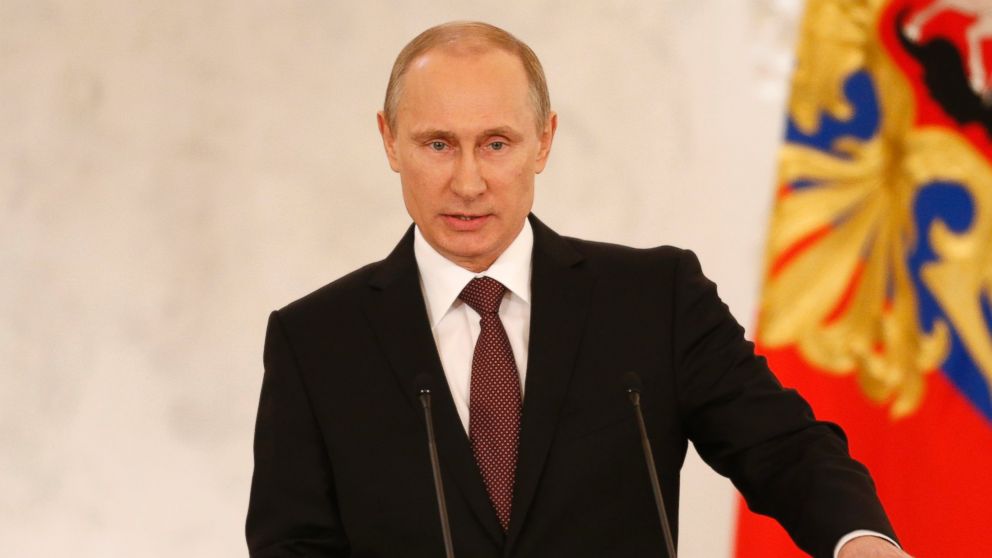BY PAUL MCLEARY, ADAM RAWNSLEY, Foreign Policy Blog
Still cold. It has been two years since NATO and Russia sat at the same table to talk security issues, and the time off hasn’t done much for the relationship. A meeting in Brussels Wednesday designed to break the ice on issues like Ukraine, Syria, and tensions in the Baltics didn’t get very far before all sides agreed they don’t see eye-to-eye on much.
“During the meeting it was reconfirmed we disagree, both when it comes to the facts, the narratives and the responsibilities for the crisis in and around Ukraine,” NATO Secretary-General Jens Stoltenberg said after the sitdown.
The NATO-Russia Council was established in 2002 to keep up a monthly dialogue between Moscow and the European defense organization, but ties were broken off in June 2014 after the invasion of Ukraine.
The war in Ukraine’s east rages on, however, with one senior Defense official telling SitRep that there are 7,000 Russian troops still inside Ukraine, advising pro-Moscow rebels and engaging in the fighting themselves.
Russian President Vladimir Putin’s intervention in the Syrian conflict to prop up the regime of Bashar al-Assad hasn’t made a dent in the ability of Russia to send more equipment to Ukraine, either. Over the past year, Russia has shipped new rocket launchers, artillery, drones, and advanced electronic warfare equipment to the eastern Donbass region.
“I think they can sustain this for a considerable period of time,” the official said. “Our view is that they could sustain this easily for 24 months” even if oil prices remain low and the Russian economy continues to stagnate. Despite an announcement last month that the Russian military would begin to withdraw forces from Syria, instead Moscow sent more advanced helicopters, and the level of daily airstrikes has remained steady.
The NATO talks, some analysts say, likely won’t amount to much. But they’re a start. Olga Oliker, director of the Russia and Eurasia Program at the Center for Strategic and International Studies says that “right now, the Russians are at the table in the interest of simply being at the table. I do think a part of the Russian purpose in meeting with NATO is ‘be aware of us, pay attention to us, and you can’t discount us,’” and not much more.
Talk about this. “I don’t think many people understand the visceral way Russia views NATO and the European Union as an existential threat,” Adm. Mark Ferguson, the U.S. Navy’s commander in Europe, told the New York Times. Ferguson was talking about the modernized Russian submarine capability, which has NATO worried, and scrambling to dust off Cold War-era strategies for tracking Moscow’s subs in the North Atlantic, the Baltic, and Mediterranean.
Road show. President Barack Obama is in Saudi Arabia for meetings with the Gulf Cooperation Council (GCC) this week, but there doesn’t appear to be anything particularly new on the agenda. It’s a far cry from the meeting Obama hosted in Washington last year where he sought to sell his Middle East allies on the Iran nuclear deal. This time around, the U.S. is expected to offer Gulf states more security assurances, and Defense Secretary Ash Carter on Wednesday pressed GCC defense ministers to do more to help rebuild and stabilize parts of Iraq ravaged by its war with the Islamic State. Obama leaves for London later Thursday.
The guns of April. The U.S. is trying to develop a new kind of shoulder-fired anti-aircraft missile to provide Syrian rebels being pounded by the warplanes of Syrian strongman Bashar al-Assad and his Russian allies. But there’s with one major caveat, FP’s Elias Groll writes in a smart new piece: they would have to “include technical controls that would limit where they can be used to ensure they don’t one day fall into terrorist hands.” But the design of such weapons controls remain highly elusive. “U.S. engineers aren’t known to have sorted out how to build a GPS chip into the weapon that would ensure it could be fired only on the front lines of northwest Syria. They also haven’t sorted out a way of rendering the weapons inert after a certain amount of time so they don’t show up on distant battlefields way in the future.”
Washington gonna Washington. Earlier this week, Raed Saleh, the head of the Syria Civil Defense — the white helmeted rescue workers in Syria you see pulling bloodied civilians from the pulverized remains of their neighborhoods — was denied entry to the United States at Washington’s Dulles airport. He had traveled to the U.S. to receive an award recognizing his contributions to humanitarian relief, but on landing, was told his visa had been canceled and placed on the next plane back to Turkey. Why? No one is saying. In a comment to the New York Times, a State Department official said something noncommittal. But State couldn’t explain what changed between last June, when Saleh traveled to New York to testify before the United Nations Security Council on the Syrian government’s use of barrel bombs, and now.









